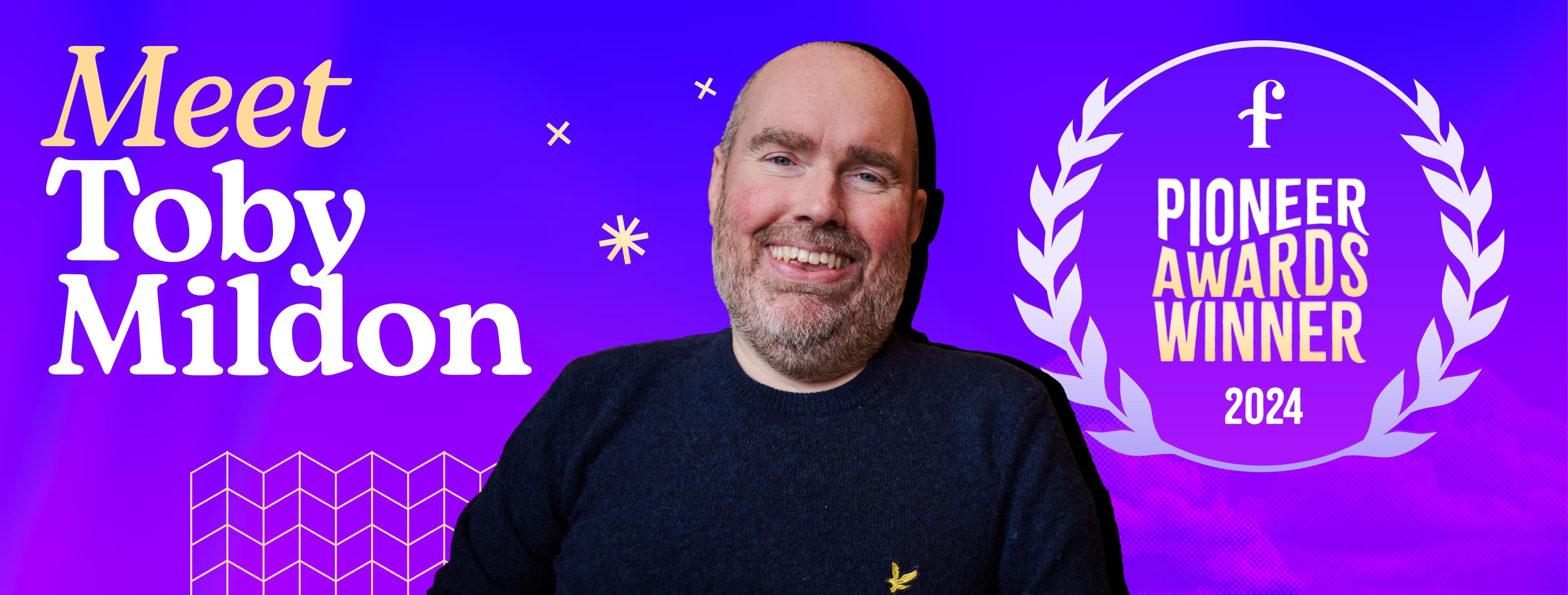Pioneer Profile: Toby Mildon
Meet Toby Mildon, Flexa Pioneer Award winner, speaker, author, and workplace inclusion architect. Toby shares insights from his career journey along with his passion for creating data-driven EDI strategies, and empowering teams to take ownership of equity.
12th Nov 2024
• 5 minutes

It’s time that we recognise the people behind the evolving world of work. Our working lives have shifted to being more inclusive, more people-centric, more flexible, and just plain better for both employees and companies.
These changes didn’t just happen: they were put into place and upheld by individuals and teams working to create a better working future for everyone.
So we’re finally putting the spotlight on the people who make great companies great: the people-people.
People-people are crucial to the success of every company. They find you the talent that drives you forwards, and they’ve taken on an increasingly strategic role in the past few years – often taking on responsibility for mental health, diversity and inclusion, culture, EVPs, Employer Branding and team happiness.
Read more about the Pioneers List and go behind the scenes to understand how and why we’ve selected our Pioneers.
We were lucky enough to speak with Toby Mildon, speaker, author, and workplace inclusion architect.
Tell us a little bit about your career history, and how you got to where you are now. What were the key milestones?
I started my career with leadership roles at Deloitte, the BBC, British Airways, and Accenture, where I built a solid foundation in equity, diversity, and inclusion (EDI). About five years ago, I shifted from corporate life to entrepreneurship, founding my own consultancy to help organisations tackle the barriers to inclusion. Two key milestones stand out:
- Writing Inclusive Growth, my first book, which laid out foundational strategies for EDI.
- Following it with Building Inclusivity, which deepened the practical steps organisations can take to implement EDI.
Both books paved the way for my Inclusive Leadership Development Programme, which helps organisations make real, measurable progress toward creating inclusive work cultures.
When did you become interested in the future of work?
My interest in the future of work began as I saw how diverse teams and inclusive leadership positively impact performance and resilience. As workforce expectations evolved, especially around flexibility, equity, and purpose, I became committed to helping organisations embed these principles for a sustainable future.
What is the most impactful change that you’ve implemented?
The Inclusive Leadership Development Programme has been the most impactful change I’ve implemented. By focusing on equitable practices in leadership and decision-making, this programme has helped organisations shift from good intentions to real progress. I’ve seen how this approach can foster safe, high-performing, diverse teams and make inclusion a core organisational strength.
What’s the biggest challenge of being in your role/industry right now?
The biggest challenge right now is maintaining EDI as a priority amidst economic pressures and budget cuts. Many organisations still see EDI as a “nice-to-have” rather than a strategic investment. Convincing the C suite of its long-term value is a continuous effort, especially as HR priorities shift towards areas like organisational design and equitable redundancy practices.
What do you think the next big trend is in working culture?
I believe equitable organisational design is the next big trend, with a focus on fair, people-centred restructuring. Companies are increasingly prioritising equity in restructuring, redundancy, and succession planning, with leaders playing a key role in fostering resilience, inclusivity, and high performance in teams. This shift is leading the way towards a culture that values diversity, adaptability, and fairness at its core.